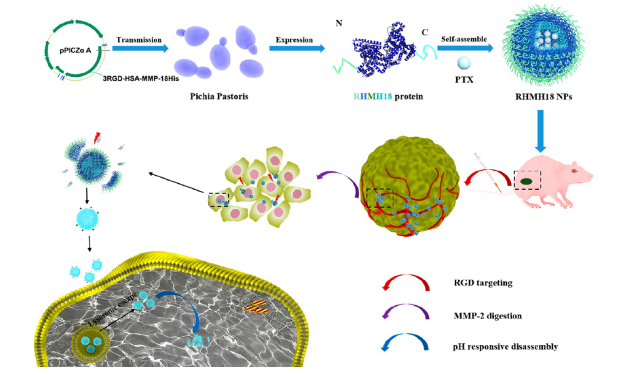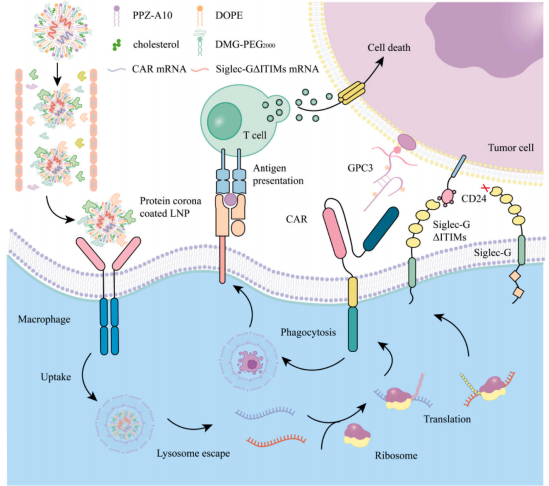Protein Mapping Service
Protein mapping refers to the visualization of proteomics data through charts, network diagrams, and other graphical formats, enabling researchers to gain a more intuitive understanding of protein functions and regulatory networks. Protein mapping service analyzes protein expression levels, post-translational modifications, and interactions to infer protein functions and mechanisms. By examining protein profiles, researchers can uncover protein-protein interaction relationships, elucidating cellular signaling pathways and metabolic networks. Furthermore, protein mapping can reveal changes in protein expression and modifications under disease conditions, facilitating the identification of disease biomarkers and therapeutic targets. Additionally, protein mapping service aids researchers in screening and validating drug targets, assessing drug efficacy and safety, and guiding drug development. In summary, protein mapping is a crucial tool in proteomics research, with significant applications across various fields of life sciences.
Services at MtoZ Biolabs
Leveraging Thermo's Orbitrap series mass spectrometers, combined with Nano-LC systems and imaging mass spectrometry technology, MtoZ Biolabs provides protein mapping service that reveal protein localization and abundance at subcellular resolution. This ensures high precision and sensitivity in data acquisition, offering in-depth insights into protein functions within cells.

Figure 1. Schematic Flow Chart of Mass Spectrometry Protein Loading.
1. Protein/Peptide Identification (Database) and Sequencing
Using high-performance liquid chromatography (HPLC) and tandem mass spectrometry (MS/MS), proteins or peptides are separated and identified by comparing mass spectrometry data with protein databases. This allows for the identification of protein or peptide sequences. Additionally, labeling or tagging techniques are used to perform quantitative analysis of protein or peptide expression levels. Beyond routine identification of simple samples, the service also includes post-translational modifications (PTMs) analysis, such as phosphorylation, acetylation, and ubiquitination.
2. Proteomics and Peptidomics
Utilizing high-performance liquid chromatography (HPLC) and tandem mass spectrometry (MS/MS), proteins or peptides are separated and analyzed to investigate protein expression levels across different cell types, tissues, or disease states. This approach enables the analysis of protein-protein interaction networks and the prediction of protein domains and folding patterns. Additionally, it includes the detection of post-translational modifications (PTMs) such as phosphoproteomics, acetylproteomics, ubiquitin proteomics, glycoproteomics, low-abundance proteomics, and spatial proteomics.
Service Advantages
1. Advanced Analytical Platform
MtoZ Biolabs has established a cutting-edge protein mapping service platform, ensuring reliable, rapid, and high-precision analytical services.
2. Transparent Pricing
Our pricing is transparent, with no hidden or additional fees.
3. High-Quality Data
Our service provides deep data coverage with strict quality control. The AI-powered bioinformatics platform integrates all protein profiling data, delivering comprehensive analytical reports to clients.
4. Customized Research Solutions
MtoZ Biolabs offers tailored services to address unique research problems and experimental requirements.
Sample Submission Suggestions
1. Sample Types
Cell extracts, tissue homogenates, serum, plasma, bacterial and fungal biomass, etc.
2. Sample Requirements
Fresh, contamination-free, and prepared according to the specified concentration and requirements.
3. Sample Amount
A minimum of three biological replicates is recommended.
Note: For insufficient samples or other sample types, please contact our technical support team for a free consultation.
Applications
1. Disease Research
Protein mapping is used to reveal the molecular mechanisms of disease development and to identify new diagnostic biomarkers and therapeutic targets.
2. Drug Development
The protein mapping service aids in screening and validating drug targets while evaluating drug efficacy and safety.
3. Basic Research
Protein mapping helps explore molecular mechanisms of life processes, elucidating cellular signaling pathways and metabolic networks.
4. Agriculture
The study of plant and animal proteomes through protein mapping service can improve crop yields and disease resistance.
5. Industry
Studying microbial proteomes enhances fermentation efficiency and production processes.
Case Study
1. Bioengineered Human Serum albumin fusion protein is used as target/enzyme/pH three-stage pushing drug carrier for tumor treatment
Human serum albumin (HSA) is widely used as a carrier for insoluble anticancer drugs due to its excellent biocompatibility and long circulation time. However, it has limitations such as weak tumor targeting and uncontrolled drug release. To enhance HSA’s biological properties, genetic fusion technology was applied to modify HSA, and the full-sequence verification analysis from the protein mapping service was used to identify the modified HSA. The compressed protein self-assembled into 3RGD-HSA-MMP-18His nanoparticles (RHMH18 NPs), with the hydrophobic anticancer drug paclitaxel (PTX) encapsulated within the polyhistidine micelle core. Due to the RGD-mediated specific binding to ανβ3 integrin, which is upregulated in tumor vascular endothelial cells, RHMH18 NPs exhibited strong tumor-targeting properties, facilitating drug accumulation at tumor sites. Once in the tumor microenvironment, RHMH18 NPs were cleaved by MMP-2, removing the HSA-3RGD molecules and leaving behind small, positively charged polyhistidine micelles, which enabled deeper tumor tissue penetration. Finally, the polyhistidine micelles successfully escaped lysosomes and released the drug in response to pH changes. This case study demonstrates how full-sequence verification analysis from proteomic mapping can be applied in drug target screening, drug efficacy evaluation, and safety assessment.

Wang, M Y. et al. ACS NANO, 2020.
Figure 2. Schematic Diagram of HSA Fusion Protein NPs (RHMH18 NPs) and Their Application in Tumor-Targeted Therapy.
2. Dual mRNA Co-Delivery for In Situ Generation of Phagocytosis-Enhanced CAR Macrophages to Enhance Hepatocellular Carcinoma Immunotherapy
Hepatocellular carcinoma (HCC) is a common and lethal disease, with limited effective therapies leading to minimal tumor regression in advanced HCC patients. Given the enrichment of macrophages in HCC and their role in tumor immunity, reprogramming macrophages into chimeric antigen receptor macrophages (CAR-Ms) has been proposed as a strategy to enhance targeted phagocytosis of HCC cells and augment anti-tumor immunity. To validate this hypothesis, a protein corona analysis based on protein profiling services was conducted, in which mRNA encoding CAR was encapsulated in lipid nanoparticles (LNPs) designed to target hepatic macrophages. The study's key findings revealed that LNPs adsorbed specific plasma proteins, enabling their targeting of HCC-associated macrophages. Additionally, mRNA encoding Siglec-G lacking ITIMs was delivered via LNPs to hepatic macrophages, mitigating CD24-mediated immune suppression in CAR-Ms. Furthermore, LNP-induced CAR-Ms combined with CD24-Siglec-G blockade therapy in mice significantly enhanced the phagocytic function of hepatic macrophages, reduced tumor burden, and prolonged survival in an HCC mouse model. This case study demonstrates how protein corona analysis within protein mapping service provides an effective and flexible strategy for HCC treatment.

Yang, Z M. et al. Journal of Controlled Release, 2023.
Figure 3. Schematic Diagram of Macrophage Action on Hepatocellular Carcinoma.
Deliverables
1. Comprehensive Experimental Details
2. Materials, Instruments, and Methods
3. Total Ion Chromatogram & Quality Control Assessment
4. Data Analysis, Preprocessing, and Estimation
5. Bioinformatics Analysis
6. Raw Data Files
MtoZ Biolabs, an integrated Chromatography and Mass Spectrometry (MS) Services Provider, provides advanced proteomics, metabolomics, and biopharmaceutical analysis services to researchers in biochemistry, biotechnology, and biopharmaceutical fields. Our ultimate aim is to provide more rapid, high-throughput, and cost-effective analysis, with exceptional data quality and minimal sample consumption. Free project evaluation, welcome to learn more details!
MtoZ Biolabs, an integrated chromatography and mass spectrometry (MS) services provider.
Related Services
How to order?







